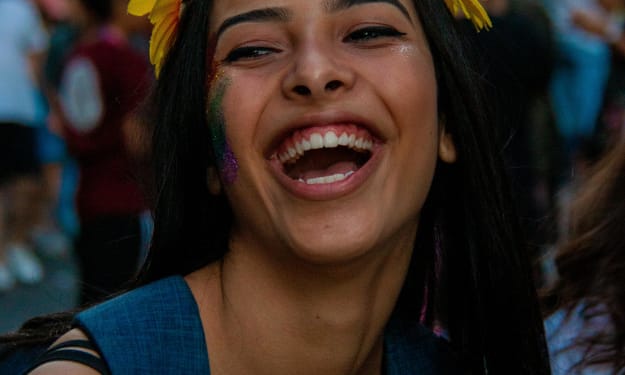The Art of Relaxation: Simple Techniques for a Stress-Free Life
The Power of Relaxation

Relaxation refers to the state of being relaxed, or the act of making oneself relaxed. Relaxation techniques can include deep breathing exercises, meditation, yoga, and progressive muscle relaxation, among others. The goal of relaxation is to reduce stress, tension, and anxiety, and promote a feeling of calm and well-being. Relaxation can also help improve sleep and overall physical and mental health.
There are many different ways to relax and promote a feeling of calm and well-being. Some methods that may be helpful include:
Deep breathing exercises: Taking slow, deep breaths can help activate the body's relaxation response and reduce stress and tension.
Meditation: Focusing the mind on a single point of reference, such as a word, phrase, or image, can help quiet the mind and reduce stress and anxiety.
Yoga: The combination of physical postures, breathing techniques, and meditation can help promote relaxation and reduce stress and tension.
Progressive muscle relaxation: Tensing and then relaxing different muscle groups can help release tension and promote relaxation.
Nature: Spending time in nature, such as going for a walk in a park, can help reduce stress and improve mood.
Reading, listening to music, drawing, taking a bath, or any other activity that you enjoy can also help you relax.
It's important to find the method that works best for you and to make relaxation a regular part of your routine.
Relaxation is important for physical and mental well-being. When we experience stress or tension, our bodies release stress hormones such as cortisol and adrenaline, which can have negative effects on our health if left unchecked. Chronic stress and tension can lead to a variety of health problems such as:
Headaches
Insomnia
Depression
Anxiety
High blood pressure
Heart disease
Digestive problems
Weakened immune system
Relaxation techniques can help counteract the effects of stress by activating the body's relaxation response, which is the opposite of the stress response. This can help reduce the levels of stress hormones in the body, lower blood pressure, and improve overall physical and mental health. Relaxation can also improve sleep, mood, and cognitive function, and can be an effective tool for managing chronic pain and other health conditions.
Additionally, relaxation can have positive effects on emotional well-being, helping to reduce feelings of anxiety and depression, and promote feelings of calm, happiness and inner peace.
There are many different places where people can relax and find a sense of calm and well-being. Some popular options include:
At home: Your own home can be a great place to relax, especially if you have a comfortable living space that you enjoy spending time in.
Nature: Spending time in nature, such as going for a walk in a park or hiking in the woods, can be very relaxing and rejuvenating.
Beaches and bodies of water: The sound of waves and the natural beauty of the ocean or a lake can be very calming and soothing.
Hot springs, sauna or spa: These places offer an environment where you can relax your muscles and enjoy the warmth and hydration of the water.
Yoga or meditation studios: Many communities have places where you can practice yoga or meditate in a quiet, peaceful environment.
Libraries, gardens, and art galleries: These places are often quiet and peaceful, and can be great for reading, contemplating, or simply enjoying the beauty of the surroundings.
A comfortable and cozy coffee shop, with a good ambiance.
Ultimately, the best place to relax will depend on your personal preferences and what makes you feel calm and at ease.
The psychology of relaxation refers to the study of the mental and emotional states associated with relaxation and how they can be achieved. Relaxation is a state of reduced tension, anxiety, and stress, and is associated with feelings of calm, contentment, and well-being.
Relaxation can be achieved through a variety of methods, including deep breathing, meditation, yoga, progressive muscle relaxation, and other relaxation techniques. These methods are designed to activate the body's relaxation response, which is the opposite of the stress response. This can help reduce the levels of stress hormones in the body, lower blood pressure, and improve overall physical and mental health.
Relaxation can also be achieved through mindfulness, which is the practice of paying attention to the present moment in a non-judgmental way. Mindfulness techniques such as mindfulness-based stress reduction (MBSR) and mindfulness-based cognitive therapy (MBCT) have been shown to be effective in reducing stress, anxiety, and depression.
Another important aspect of the psychology of relaxation is the role of cognitive and emotional regulation. Relaxation can be hindered by negative thoughts and emotions, such as worry, fear, and anger. Therefore, it's important to learn how to identify and manage these thoughts and emotions in order to achieve a state of relaxation.
In summary, the psychology of relaxation involves understanding the mental and emotional states associated with relaxation, the techniques and methods that can be used to achieve relaxation, and the role of cognitive and emotional regulation in the relaxation process.
About the Creator
Enjoyed the story? Support the Creator.
Subscribe for free to receive all their stories in your feed. You could also pledge your support or give them a one-off tip, letting them know you appreciate their work.
Reader insights
Nice work
Very well written. Keep up the good work!
Top insight
Heartfelt and relatable
The story invoked strong personal emotions





Comments
There are no comments for this story
Be the first to respond and start the conversation.